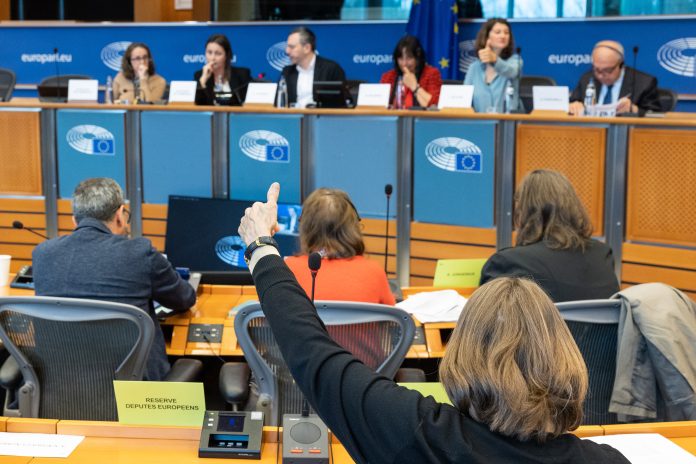Dr. Cathy Barrera, Founding Economist for Prysm Group Exclusive Interview at Converge2Xcelerate | ESG News – Boston, MA
Dr. Cathy Barrera, Founding Economist for Prysm Group at Converge2Xcelerate Conference (Boston, MA)
HIGHLIGHTS
- Prysm Group is a research driven economic consulting firm at the cutting edge of blockchain & distributed ledger technology
- Dr. Barrera is an advisor to blockchain projects at the World Economic Forum, MIT, & is a frequent keynote speaker on economics & DLT
- Blockchain technology in healthcare market expected to reach $42.1 million by 2023
FULL COVERAGE
INTERVIEW TRANSCRIPTS: Dr. Cathy Barrera, Founding Economist for Prysm Group
Ed Kim – Host, Traders Network Show: 00:00
Okay. Welcome back. We’re here today with Dr. Cathy Barrera, a partner and founding economist of Prysm group that specializes in economic and governance design for distributed ledger companies, institutions, and governments. Dr. Barrera, thank you for your time today. You were previously a tenure track faculty at the school of management at Cornell. What made you leave academia and try to have a more corporate or commercial solution to this problem?
Cathy Barrera – Founding Economist, Prysm Group: 00:33
Sure. So I think that you know, an interesting thing about economics is thinking about how people behave and how people coordinate on difficult problems. And it’s nice being an academia. It’s nice working with students who are going to get out there and change the world, but sometimes you want to dig into yourself and really help. And I think that that blockchain is at a moment where it can use a lot of help right at a pivotal moment to try to push the technology forward. And the industry is really lacking in in folks with my type of skill set. So that’s why I founded Prysm Group.
Ed Kim – Host, Traders Network Show: 01:16
Perfect. Now when you say that as you work with companies and as you work with governments, are you finding that one group versus another is more eager, more enthusiastic to make sure this thing works? Or is there resistance?
Cathy Barrera – Founding Economist, Prysm Group: 01:32
Is there resistance? Well, I mean I certainly think that in the public discourse there’s, there’s some resistance to some projects that, that are getting a lot of news coverage. I think that there is some misunderstanding about what the technology can do. And it’s not all about cryptocurrencies. There’s a lot of other applications that are going to be particularly important. Now blockchain distributed ledger is essentially a shared database that can be used by a group of entities or a group of individuals who want to work together to coordinate on this data. Right. And so one of the main applications that we saw particularly that got a lot of hype in 2017 was cryptocurrencies. But there’s many reasons why we might want to use a shared database and we need to figure out how to get those folks together to coordinate on this data. And that requires economics, whether or not you’re using a currency.
Ed Kim – Host, Traders Network Show: 02:36
Right, of course. Now, how does it question of education? How does the individual and a specific example of healthcare and healthcare data, how does an individual in a world where we’re Facebook apparently can’t keep control of its own if its own data and has no sense of what the exposures of its own data, how does an individual get comfortable with the notion of using blockchain to democratize or to share that data effectively?
Cathy Barrera – Founding Economist, Prysm Group: 03:08
Sure. So, I certainly think that there’s several different layers or several different skill sets that have to come to bear on a technology like blockchain. So one is the technology itself. Computer scientists need to get involved and need to code up a secure system. Another is possibly what you’re referring to is sort of a, maybe a marketing angle, right? We need to educate the population and teach them what this technology can do. And a third is economics, right? So we need to provide the right cost and benefit, set the right incentives to the participants so that this technology provides them with more than what they could get elsewhere. And that really depends on how the specific system is designed.
Ed Kim – Host, Traders Network Show: 03:57
The question of incentives is, is maybe the most interesting question for four people. We’ve met a lot of people at this conference today who are trying to democratize healthcare data across the different silos. You’ve got personal data, physician data, pharmacy data. How do you overcome that concern about data privacy as that data gets shared from, from silo to silo to silo.
Cathy Barrera – Founding Economist, Prysm Group: 04:30
Right? So I think that this particular question might be better geared towards maybe someone with a computer science background. I think that a lot of this has to do with the way that the data is secured on blockchain and how it can be access to the use of private keys. For example,
Ed Kim – Host, Traders Network Show: 04:49
Dr Barrera, the question of incentives and impediments, what do you think we need to do as a country, as an ecosystem in order for blockchain to become more widely adopted?
Cathy Barrera – Founding Economist, Prysm Group: 05:04
Sure. So I think I think usability is certainly a big issue that that needs to be overcome. But really I think each of the blockchain platforms that’s being designed needs to be designed very carefully so that it can achieve its goals. Incentives don’t happen automatically and there’s lots of examples of poor incentive design both within the blockchain space and outside of it. Incentives are actually super difficult to get, right. And so that’s why I think it’s important to bring expertise to the design of these systems so that the incentives are aligned properly to get the stake hold holder behavior that we’re hoping to see.
Ed Kim – Host, Traders Network Show: 05:45
That’s terrific. We’ve been speaking with Dr. Cathy Barrera, founding economist and partner at Prysm Group. Thank you for your time, Dr. Barrera.










